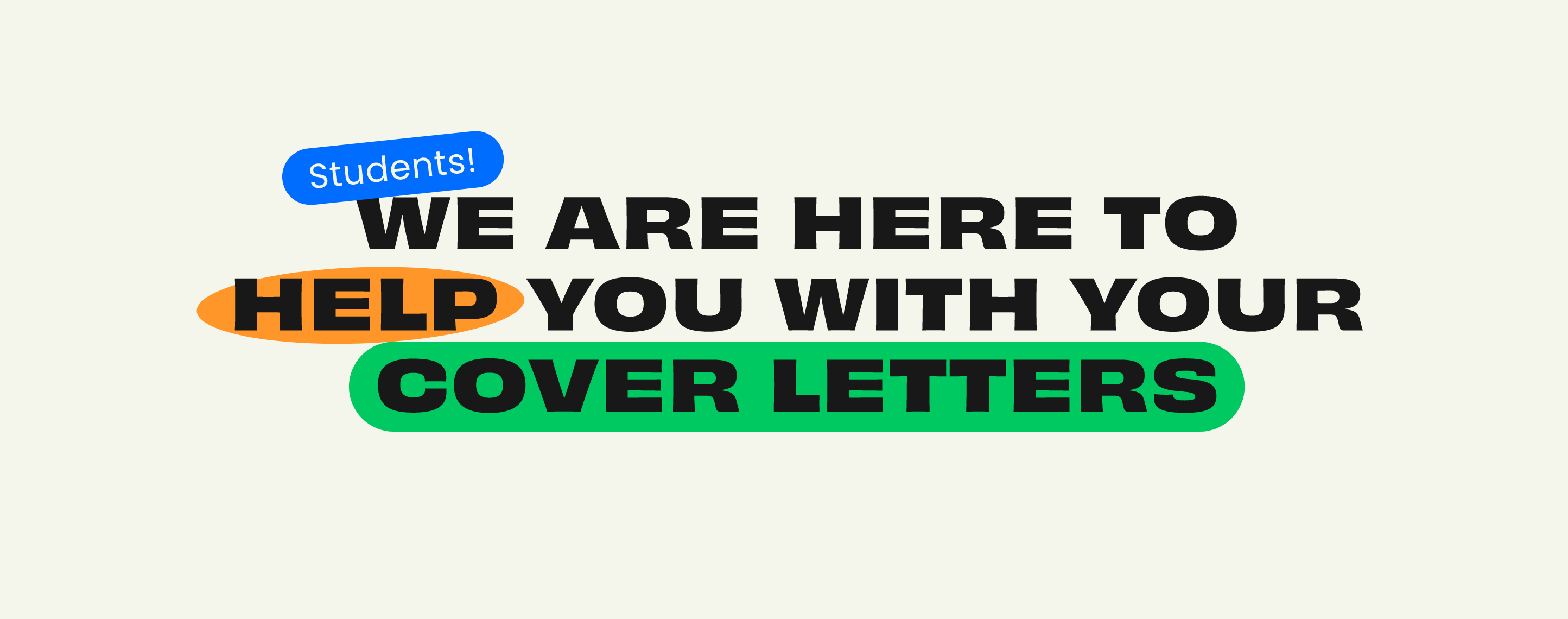
Students: We're Here to Help with Your Cover Letters
A cover letter is like an introduction to your resume. It’s a way to show off your specific qualifications and skills and tell your story. But you do so in a way that demonstrates your interest in the position to which you’re applying.
You should tailor your cover letter specifically to the job application. You should include examples of your qualifications and skills that match the employer’s requirements. Here are some tips on how to write a cover letter that will help you get the job you want.
Do:
- Start with a bang: Grab the employer’s attention from the beginning. Include a powerful and specific statement about why you are interested in the company and the job.
- Sell yourself: Use specific examples of your qualifications and skills that match the employer’s requirements. Quantify your previous experience wherever possible, so they know what you offer.
- Tell your story: Use your cover letter to tell your story and demonstrate why you’re the perfect fit for the job. What is it about this company or position that interests you? Show them why YOU are interested in THEM!
- Keep it short and sweet: Keep your cover letter to one page — any longer, and you risk losing the employer’s interest. Don’t repeat yourself from your CV: Your cover letter should not be a repeat of your CV. A cover letter should explain why you want to work for them, while your CV should focus on what you have achieved.
Don't:
- Don’t be generic: A generic cover letter won’t impress employers – you need to tailor yours to each job application.
- Don’t include unrelated information: Only add relevant information to the job to which you’re applying. Employers don’t want to read your life story; they want to know why you’re qualified for the job.
- Don’t make grammatical errors: Proofread your cover letter carefully before sending it off. Any mistakes will reflect poorly on you and could hurt your chances of getting the job.
Your cover letter is your chance to show some character and explain why you’re the perfect fit for the job. But there’s a fine line between coming across as enthusiastic and professional and seeming unqualified or too casual. It’s essential to be excited about the role you’re applying for, but remember that this is a formal letter addressed to a potential employer. Do your best to observe conventional standards of etiquette and avoid sounding too friendly or familiar.
In addition to conveying your interest in the position, your cover letter is an opportunity to show you’ve researched the company. Reviewing the organisation’s website, following them on social media, and reading relevant news stories will give you a better sense of a company’s identity. This way, when it comes time to write your cover letter, you can address specific points that show why you would be a valuable asset to their team.
Following these tips will help you write a great cover letter that will increase your chances of getting the job you want!
No suggestions yet.


